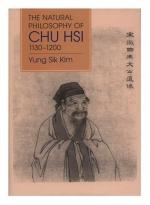|
This section contains 956 words (approx. 4 pages at 300 words per page) |

|
SOURCE: “History—Classical and General Literature,” in A History of Chinese Literature, D. Appleton and Company, 1931, pp. 212-31.
In the excerpt below, Giles offers a brief overview of Chu Hsi's life and his major contributions to Chinese philosophy.
… The name of Chu Hsi (1130-1200) is a household word throughout the length and breadth of literary China. He graduated at nineteen, and entered upon a highly successful official career. He apparently had a strong leaning towards Buddhism—some say that he actually became a Buddhist priest; at any rate, he soon saw the error of his ways, and gave himself up completely to a study of the orthodox doctrine. He was a most voluminous writer. In addition to his revision of the history of Ssŭ-ma Kuang, which, under the title of T‘ung Chien Kang Mu, is still regarded as the standard history of China, he placed himself...
|
This section contains 956 words (approx. 4 pages at 300 words per page) |

|


